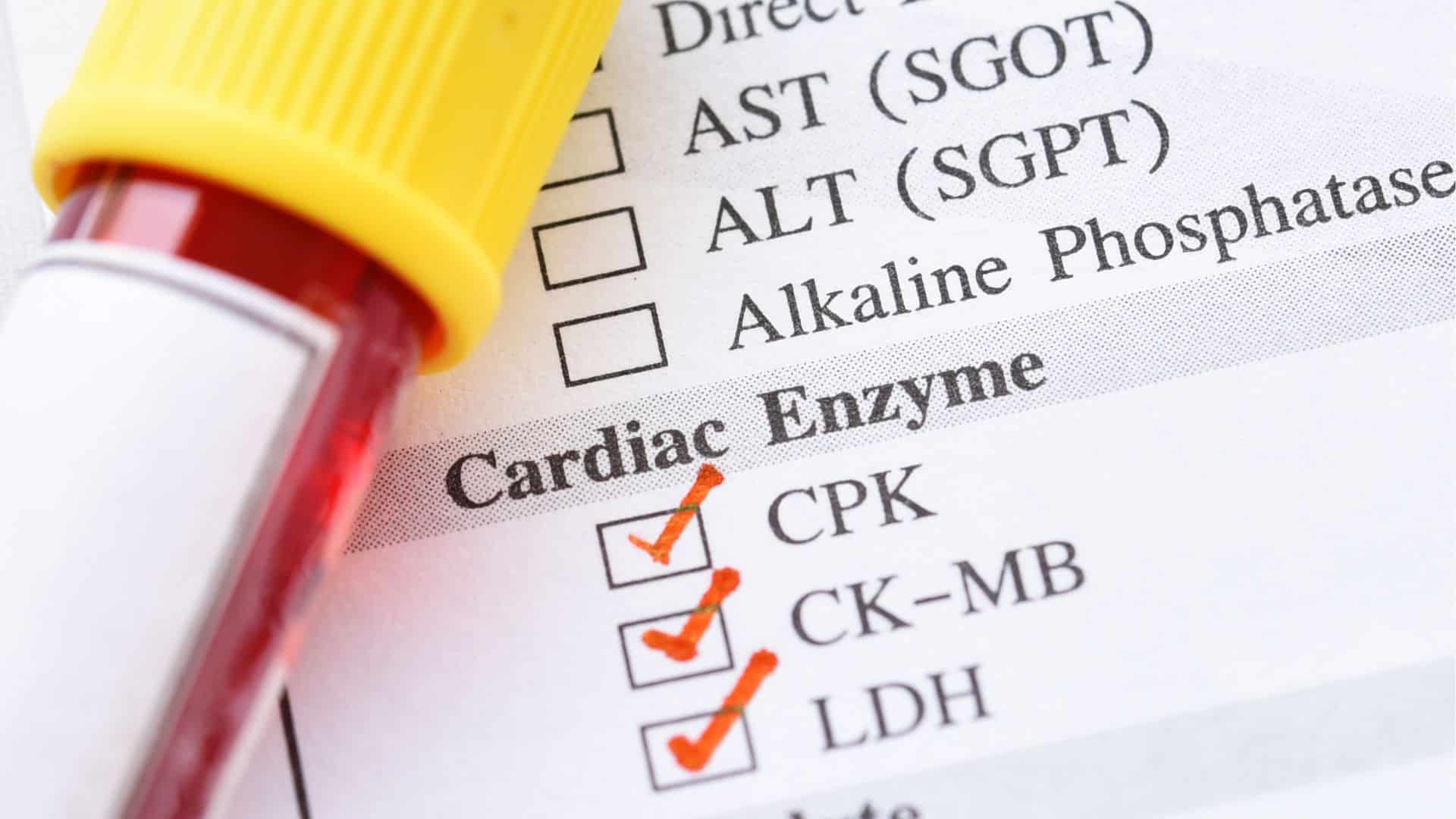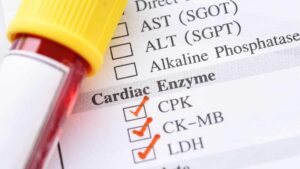
In the realm of cardiovascular health, cardiac enzyme testing plays a crucial role in diagnosing and assessing heart-related conditions. These tests provide valuable insights into the functioning of the heart and help healthcare professionals make informed decisions about patient care.
What are Cardiac Enzymes?
Cardiac enzymes are proteins released into the bloodstream when the heart muscle is damaged. These enzymes serve as biomarkers, indicating the presence and extent of heart damage. The most commonly measured cardiac enzymes include creatine kinase (CK), troponin, and lactate dehydrogenase (LDH). (WebMD)
Creatine kinase, found in the heart, brain, and skeletal muscles, is an enzyme that aids in energy production. Elevated levels of CK in the blood can suggest heart muscle damage. Troponin, a protein involved in muscle contraction, is specific to the heart. Increased troponin levels are a clear indicator of heart muscle injury. LDH is another enzyme found in the heart, liver, and other tissues, and elevated LDH levels can signify heart damage. (Healthline)
Importance of Cardiac Enzyme Testing
Cardiac enzyme testing is particularly crucial in the diagnosis of acute coronary syndrome (ACS), which includes conditions such as heart attacks and unstable angina. When a person experiences chest pain or other symptoms suggestive of a heart problem, healthcare providers often order cardiac enzyme tests to assess if there has been damage to the heart muscle. Troponin, in particular, has become a gold standard in diagnosing myocardial infarction (heart attack). Even small elevations in troponin levels can indicate damage to the heart muscle, allowing for early intervention and better outcomes. (Cleveland Clinic)
The Testing Process
Cardiac enzyme testing typically involves a blood test. Blood samples are drawn and sent to a laboratory for analysis. The levels of specific enzymes in the blood are then measured, and results are compared to established reference ranges to determine if there is any indication of heart damage. It’s important to note that timing is crucial in cardiac enzyme testing. Enzyme levels may not immediately rise after a heart event and can peak hours to days later. Therefore, multiple tests may be conducted over a period to accurately assess the extent of heart muscle damage. (Healthline)
Cardiac Enzyme Testing in Emergency Departments
In emergency departments, cardiac enzyme testing is often performed in conjunction with other diagnostic measures to rapidly assess and manage patients presenting with chest pain or other symptoms of ACS. Troponin testing, in particular, has become an integral part of the diagnostic algorithm due to its high sensitivity and specificity for myocardial injury. (Cleveland Clinic)
Understanding Troponin Testing
Troponin testing is highly sensitive and specific for detecting myocardial injury. Elevated troponin levels can indicate various cardiac conditions, including myocardial infarction, myocarditis, and heart failure. The ability to detect even small amounts of troponin has revolutionized the diagnosis of heart-related conditions. (Cleveland Clinic)
Cardiac Health Diagnostics: Life Saving Tools
Cardiac enzyme testing plays a pivotal role in the diagnosis and management of heart-related conditions. These tests, particularly those measuring troponin levels, provide valuable information about the extent of heart muscle damage, enabling healthcare professionals to make timely and informed decisions.
As technology advances, cardiac enzyme testing continues to evolve, offering improved accuracy and efficiency in the assessment of cardiovascular health. By understanding the significance of cardiac enzyme testing, individuals can appreciate the role these biomarkers play in safeguarding heart health. Regular check-ups and prompt medical attention in case of symptoms can contribute to the early detection and management of heart-related issues, ultimately improving outcomes for individuals at risk of cardiovascular diseases.
Works Cited
“Cardiac Enzymes Test for Heart Attacks: Normal Range, High vs Low.” WebMD, www.webmd.com/heart-disease/cardiac-enzymes-studies.
Roland, James. “What Are Cardiac Enzymes, and Why Do They Matter?” Healthline, Healthline Media, 4 Jan. 2022, www.healthline.com/health/cardiac-enzymes.
professional, Cleveland Clinic medical. “Cardiac Enzymes (Cardiac Biomarkers): Types, What They Indicate.” Cleveland Clinic, my.clevelandclinic.org/health/articles/22115-cardiac-enzymes-cardiac-biomarkers.

